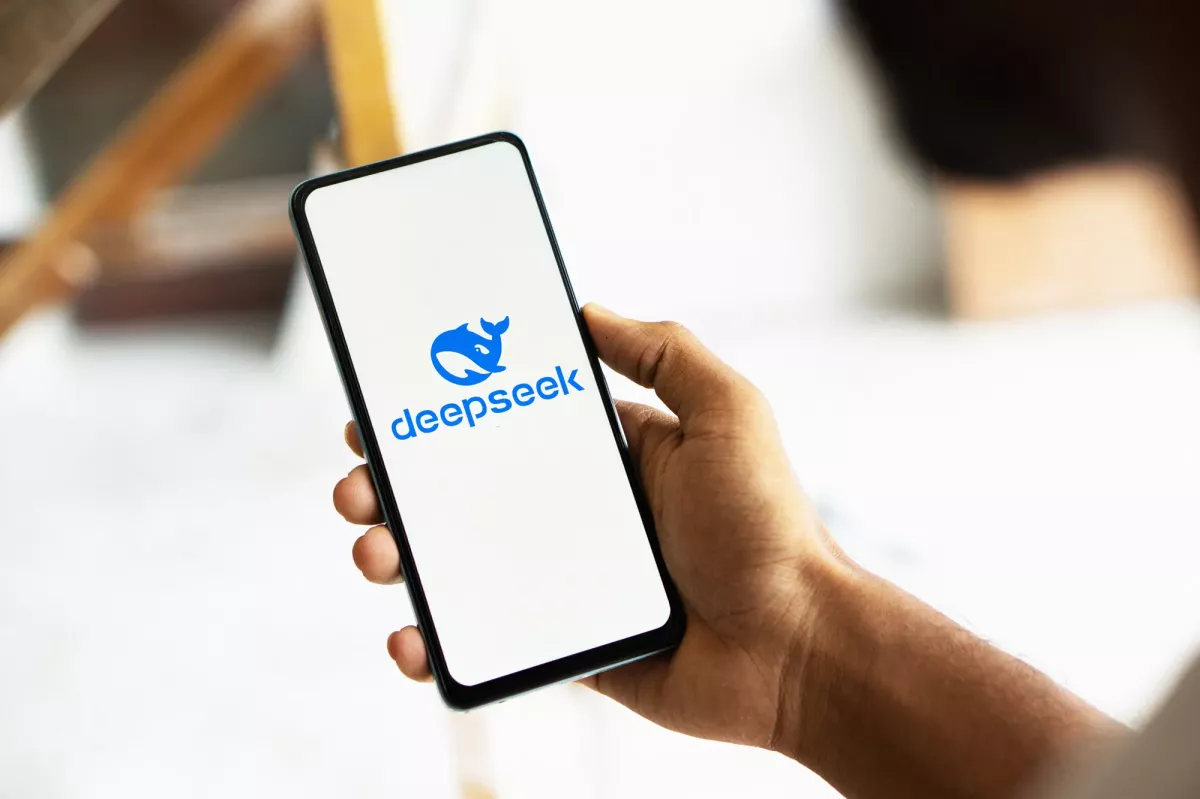"Chinese shock" for Western technologies DeepSeek shakes Silicon Valley
A bill has been introduced in the U.S. Congress to ban Chinese artificial intelligence (AI), with violators facing up to 20 years in prison. Will these repressive measures help Western corporations outcompete China?
Harsh bans in the "free market"
A bill has been introduced in the U.S. Congress that mandates a complete ban on the use of popular Chinese neural networks such as DeepSeek and Qween, as well as the products used for their development and application. Individuals who violate this ban could face fines of up to 1 million dollars, while legal entities may be fined up to 100 million dollars. Violators could also face up to 20 years in prison. Earlier, a ban was imposed on the use of DeepSeek in U.S. government institutions and the defence sector.
The thing is, AI developers in the West are losing the race to China. The DeepSeek app has surpassed its main competitors, ChatGPT and Gemini, in downloads on the App Store, causing a catastrophic collapse in the stock prices of leading Western corporations. This new development from Chinese engineers has literally shaken Wall Street. U.S. tech company stocks plummeted by one trillion dollars immediately after the introduction of this Chinese chatbot. Nvidia, which produces chips for AI, saw its market value drop by 600 billion dollars in one day, Google lost 100 billion dollars, and Microsoft lost seven billion dollars. Stocks for Oracle fell by 14%, and Broadcom dropped by 17%. The only company to benefit in a way was Apple, which regained its status as the world’s most valuable company.
The collapse of tech companies also led to a broader downturn in the stock market. The Standard & Poor's 500 index dropped by 1.5%, while the tech-focused Nasdaq 100 fell by 3%. The stock prices of energy companies, Bitcoin, and other cryptocurrencies also saw a sharp decline.
The DeepSeek neural network was developed by the company of the same name, which was founded in Hangzhou in 2023. In December of last year, the company introduced the DeepSeek-V3 model, and by January 2025, it released an upgraded version, DeepSeek-R1. So, what is the secret behind the success of this Chinese AI version?
Open source code
Much of the success of Chinese AI can be attributed to an unexpected move by its developers: DeepSeek is open-source, available for other programmers to study. Now, millions of people can use this Chinese neural network for free. Additionally, the development of DeepSeek was remarkably inexpensive: according to representatives of the Chinese company, it cost around 5.6 million dollars and took just two months to create. In contrast, Western companies spend tens of billions on similar projects. Yet, DeepSeek delivers the same performance as ChatGPT, at a significantly lower cost. Training DeepSeek-R1 requires only 3-5% of the resources needed by the American company OpenAI to develop ChatGPT. This has caused significant disruption in the relevant circles worldwide.

At the same time, DeepSeek did not have access to the same number of graphics cards as OpenAI. The Chinese company had to operate under the strict chip supply restrictions imposed by President Biden from 2021 to 2023. However, Western sanctions only spurred innovation among Chinese programmers. The company in Hangzhou found a successful technical solution by replacing the supervised fine-tuning (SFT) technology with faster and cheaper reinforcement learning (RL). DeepSeek uses only 50,000 graphics processors, while American companies use around 500,000 processors. Despite this, the Chinese neural network significantly reduces computational costs by using less memory.
Users believe that DeepSeek has reasoning abilities comparable to its American "counterparts." The Chinese company itself claims that its model excels in coding and solving mathematical problems more effectively than ChatGPT. Additionally, the Chinese app differs from other chatbots by formulating its reasoning before providing an answer. As a result, Chinese DeepSeek has already been dubbed the "killer" of the American ChatGPT worldwide.
In simpler terms, anyone can download this Chinese neural network for free and use it, unlike Meta's (Llama), OpenAI's (ChatGPT), or other Western alternatives, which do not allow free access. The Chinese developers countered the lack of hardware power with an optimal program—and won. Naturally, investors flocked from American tech companies to the more efficient, yet significantly cheaper (20-50 times less expensive) Chinese model.
"Not to make huge profits..."
DeepSeek is essentially a small startup that has challenged the giants of Silicon Valley. Among the various reasons for the latest success of the company from the Middle Kingdom, one of the most significant may be the traditional Chinese approach to work and business. The CEO of DeepSeek, Liang Wenfeng, expresses his credo in a way that might be unexpected for a businessman: "Our principle is not to lose money and not to make huge profits… Our starting point is not to seize the opportunity to get rich, but to be at the forefront of technology and contribute to the development of the entire ecosystem."
What began primarily as a research project with no clear intention of generating profit has turned into something far more impressive. While the company’s commercial success is undeniable, its focus on long-term goals rather than short-term gains has allowed it to foster a broader perspective. This approach has encouraged both intellectual and spiritual growth within the company.
Simultaneously, DeepSeek has not overlooked the material side of business. To attract top talent, the company offers salaries significantly higher than those at industry leaders like Tencent—reportedly, up to twice as much.

Practical users, during testing, also noticed another difference between the American and Chinese neural networks. When ChatGPT is given a tricky math problem and makes an error, upon being pointed out, the American neural network starts to argue, defending its correctness. In contrast, the Chinese DeepSeek lacks this Western arrogance; it immediately acknowledges and corrects its mistake. Traditional humility and the ability to admit flaws are also key factors in its successful development.
The success of the new model has already been recognized by the highest political leadership in China. As reported by the Xinhua news agency, on the day of the presentation of DeepSeek-R1, January 20, Liang Wenfeng was invited to a closed symposium for businesspeople and experts organized by Chinese Premier Li Qiang. China’s leaders likely view the success of this neural network as an important step in overcoming U.S. export controls.
However, even today, the latest Chinese development in AI is being subjected to attacks and outright criticism in many Western media outlets. The neural network is accused of political self-censorship, promoting a Chinese worldview, manipulation, and violations of user privacy. It is also claimed that the stated cost of the project was underestimated, among other things.
General Intelligence – the shared destiny of humanity...
The essence of the conflict of interests is that today both the Chinese company DeepSeek and the Western tech giants have made the creation of artificial general intelligence (AGI) their primary goal. This means developing AI that is equal to human intelligence. This ambition has been behind the recent astronomical growth of tech corporations on the stock markets. For years, American companies were indisputable leaders in the AI market, and Silicon Valley seemed like an impregnable fortress for competitors. Yet suddenly, it turns out that in Hangzhou, they have found a different, much more economical way to solve this task. High-level AI can now be created without the vast amounts of computing power, microchips, electricity, and cooling water previously thought necessary. This undermines many of the achievements and the significance of companies like NVIDIA, Meta, Google, Microsoft, and others, as the stock markets have already shown.
In addition to the introduction of the bill in the U.S. Congress to limit the use of Chinese AI, the Australian government recently announced that DeepSeek AI is banned in all government systems. However, it is unlikely that bans and penalties will stop global technological progress. Especially since the stated goal of creating artificial general intelligence closely aligns with the socio-philosophical concept of China and the Communist Party of China (CPC) regarding the building of a "Community of Shared Future for Mankind"…








